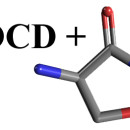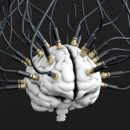OCD & D-cycloserine: A Promising Medication for OCD Treatment
As someone who has long been enamored with basic science, I find it fascinating when classic medications are re-purposed in surprising ways. One of the newest examples of this is the use of D-cycloserine (also known as Seromycin) in the treatment of obsessive-compulsive disorder (OCD). What’s interesting about D-cycloserine is not so much what it is…but what it isn’t: D-cycloserine is neither an SRRI nor any other type of antidepressant (e.g., Prozac). It’s not an anti-anxiety medication (e.g., Xanax, Klonopin). It’s not even an atypical antipsychotic (e.g., Abilify, Risperdal). If it’s not one of the above, then what is it? The answer might surprise you. Seromycin is actually an antibiotic that was originally developed to help fight off tuberculosis. What’s exciting about using an antibiotic to treat OCD is that it’s not subject to the same side effects as other medications (i.e., the SSRIs,...
Read MoreOCD & ECT (electro-convulsive therapy): Not a first-line treatment
If your only diagnosis is OCD and you don’t have any other complicating factors, be cautious when considering electro-convulsive therapy (ECT) for treating your OCD. ECT can be a very helpful intervention for many types of conditions (e.g., severe depression, bipolar disorder, schizophrenia), but it is not considered to be a first-line treatment for OCD. Unfortunately, I have encountered several individuals recently who have undergone ECT without first receiving a good trial of exposure and response prevention (ERP). Research indicates that medication and intensive ERP should be attempted prior to undergoing ECT, unless there is a good reason why these interventions are counter-indicated. If you have OCD and you are considering ECT, consult with a psychiatrist who specializes in treating OCD. He or she can advise you about your best course of action. Questions? Comments? Sound off...
Read More




